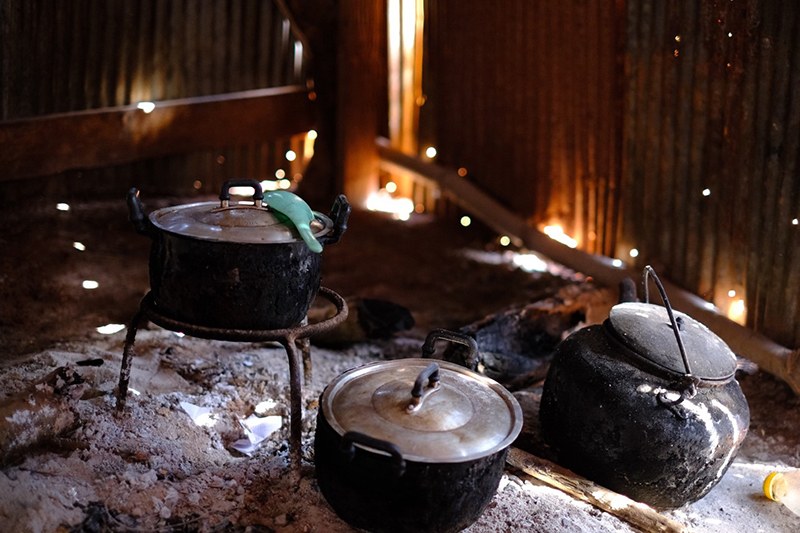Volunteering in Thailand
19 January 2023 - All

There’s something enchanting about forging new friendships with people that will last for a long time, especially in unexpected moments – and I experienced this feeling first-hand during Christmas 2022.
It all started when I took a trip to my grandparents’ house in the remote countryside of Thailand before Covid-19. We drove up a mountain to take in the view and, to our surprise, discovered a village full of fluent Chinese speakers. After speaking to them, we learned that their ancestors were Chinese veterans who had been detained in Thailand during World War II; they were unable to return to their home country after the war, and so were forced to move into this new environment. Generations later, they are still living in heart-wrenching conditions and have been unable to relocate. Their children’s school was built from scratch by a lineage of donors from China, including the headmaster’s family, but they are severely lacking in teaching resources and staff. I was lucky enough to be welcomed into this school for a brief visit, and after witnessing first-hand the shocking lack of supplies, I reached out to the headmaster, determined to help this community.
Although I was unable to travel to Thailand, I kept in close contact with the headmaster throughout the pandemic. We discussed many ways to help the school’s students, and eventually planned a project to help ten pupils who were in dire need of support. After developing the plan further with the enthusiastic staff at Wycombe Abbey, including Mrs Duncan, Mr Tourle and Mrs Hyde, I was finally able to carry out the project at Christmas.
The first part of the project was conducting a quality-of-life survey with the students, as well as directly interviewing them about their life and aspirations. It was an extremely inspiring experience: all ten students rated their financial situation a 1 or 2 on a scale of 1-10 but gave their happiness a rating of 8-10. The students also unanimously mentioned that their dream job upon reaching adulthood was to continue helping their parents with farming or take whatever job will be available to them. I then raised the question to a hypothetical level, asking what they wish they could do if given ample opportunities, but almost all of them replied that they did not dare to hope for such luxuries, as their parents simply would not be able to fund their higher education. For them, moving out of the mountain into the city is a distant impossibility. During the interviews, when thinking about what my response would be to the same question, I reflected on how unbelievably fortunate I am to have a plethora of opportunities available to me, as well as the freedom to choose whatever path I wish.
I was further shocked when we conducted visits to the students’ homes. I realised that my ‘quality of life’ survey had been incorrect to begin with, as ‘quality of life’ is not an applicable term when attempting to describe their living conditions. The stress of the pandemic had worsened their situation in every way possible – basic necessities like clean hot water and electricity are a distant dream for them, and for some families, their roofs do not provide adequate protection against the weather. Each family had at least five children. However, the size of their accommodation was smaller than the UV Campbell study. It was then that I realised I had not even begun to grasp the extent of the challenges they face every day, and the injustices that they are forced to overcome due to their lack of secure income and support.
Their fiercely positive mindsets even in the face of the heartbreaking reality of their situation not only caused me to be intensely grateful for my own circumstances but further motivated me to make a difference for them. The sheer amount of loss they have suffered would be deemed unfair by anyone, yet they somehow still constantly exercise colossal resilience and positivity. I have learnt a great deal from every single student, and I am determined to help them fight for better futures. It was a truly gratifying process to make such connections with these amazing people, and I am beyond grateful that I have the opportunity and ability to allow me to offer them support and provide a voice through which they can speak.
Grace
UV